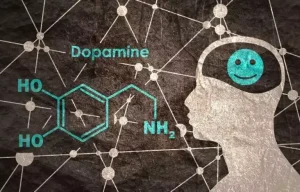
This deficiency can lead to severe health issues like Wernicke-Korsakoff Syndrome (WKS), which affects the brain and nervous system. Findings of a small open study that enrolled 13 healthy males suggest that taking vitamin C before drinking may increase the rate at which alcohol is cleared from the blood. Taking 2 grams of vitamin C one hour before alcohol consumption increases the rate at which alcohol is cleared from the blood, and may reduce acute toxic effects on the liver (Chen 1990). This significance of this finding is limited by small study size and the absence of blinding and a control group. Supplements to reduce alcohol cravings can play a crucial role in overcoming alcohol dependence and staying on the path to recovery.
Detoxification process
These nutrients are key to fighting conditions like cancer, chronic pain, premature aging, diabetes, immunity issues, and more. Therefore, for an individual who’s recovering from alcohol abuse, it’s important to visit a doctor for blood testing to find what vitamins they’re deficient in and what they can do to improve those deficiencies. Vitamin E is essential for antioxidant protection, which helps the body neutralize harmful free radicals produced during alcohol metabolism. This vitamin also supports liver function and the repair of damaged cells and tissues. Including vitamin E-rich foods such as nuts, seeds, and vegetable oils in your diet can give your body the antioxidant protection it needs during alcohol recovery. By raising ROS and lowering endogenous antioxidant levels, alcohol promotes oxidative stress [101].

Magnesium and Zinc Benefits
In addition to dietary issues, alcohol affects how the body digests, stores, and uses nutrients. For example, it can decrease the secretion of digestive enzymes in the pancreas and impair nutrient absorption from the cells of the stomach or intestines. However, people who misuse alcohol may eat less food and commonly have deficiencies in zinc, magnesium, selenium, protein, and certain vitamins. Individuals with alcohol use disorder may experience deficiencies in vitamins such as vitamin B. A doctor may recommend taking supplements to help them through the detoxification process. A holistic approach to alcohol use disorder treatment also addresses mental health, cognitive aspects, and behavioral therapies.
Addiction Info
Regular exposure to sunlight or eating vitamin D-rich foods such as fortified milk, fatty fish, and egg yolks can help restore this essential nutrient to adequate levels. To maintain healthy thiamine levels and support brain function, you should consume a balanced diet rich in thiamine sources. Moreover, medical professionals often recommend supplementing with oral or intravenous thiamine, especially for individuals with alcohol use disorder. When you are trying to quit or stay away from alcohol, cravings can be overwhelming. It is normal to seek remedies like over-the-counter herbs, vitamins and supplements to stop the cravings and support your sobriety. However, while some studies support using certain supplements, it is important to know that not all directly impact alcohol withdrawal symptoms.
- CYP2E1, an enzyme engaged in ethanol metabolism directly or by creating reactive oxidative metabolites, is implicated in ethanol disruption of enzymes involved in vitamin D metabolism [83,91].
- It also affects your body’s ability to absorb B vitamins and folic acid.
- Taking 2 grams of vitamin C one hour before alcohol consumption increases the rate at which alcohol is cleared from the blood, and may reduce acute toxic effects on the liver (Chen 1990).
- Incorporating these nutrients into your diet and, if necessary, taking supplements can help keep your liver, pancreas, and intestines functioning optimally and reduce the risk of alcohol-related health concerns.
Bio-Repair and Slow Time: The Sweet Science of Supplements
- In contrast, Laufer et al. [56] only showed an effect of ethanol on vitamin B12, with no effect on vitamin B9.
- Alcohol consumption can lead to iron deficiency, which may cause anemia, fatigue, and a weakened immune system.
- Studies show that glycine is useful in treating both alcoholic hepatitis and carcinoma caused by alcoholic cirrhosis.
- It eases inflammation and protects the thin layer that surrounds your brain cells, called the cell membrane.
- Doctors can identify the physiologic signs of long-term alcohol abuse through a physical examination and blood tests.
Other recovery programs have gyms and fitness centers that you can use at designated times. Both regular exercise and a healthy diet can improve mood, increase energy levels, promote self-confidence and self-esteem, repair tissue and organ damage, and alleviate drug or alcohol cravings. Of course, these are only 12 helpful options—there are many vitamins and supplements for alcoholics you can take to aid your system in recovery. We recommend speaking with vitamins for recovering alcoholics your doctor about how heavy drinking has impacted your body, and which supplements will be the most safe and useful for you as an individual. Other new habits, such as regular exercise, mindfulness practice, and a healthier diet, can all contribute to boosting your health in recovery. Although small amounts of alcohol may not have a big impact on your nutritional health, many chronic, heavy drinkers struggle with significant nutrient deficiencies.
One animal study showed that ashwagandha helps control mood changes, anxiety and seizures from alcohol withdrawal, but this effect has not yet been studied in humans. Kudzu might be helpful for those who struggle with alcohol because some data show that it can help reduce alcohol intake, even in those who drink heavily. Further, kudzu does not affect sleep cycles and may start working after a single dose. Although there is little data about the benefit of vitamin B1 on alcohol withdrawal cravings, supplementing with vitamin B1 is important to avoid complications from alcohol use. In addition, fatty acid ethyl esters (FAEE) synthase produces FAEEs via nonoxidative metabolism [22].
- Naltrexone can help retrain your brain to be less interested in alcohol over time, while acamprosate, baclofen, gabapentin, and topiramate can all help reduce cravings for alcohol.
- Supplements to reduce alcohol cravings can play a crucial role in overcoming alcohol dependence and staying on the path to recovery.
- Folic acid is in foods like enriched bread, flour, cornmeal, pasta, rice, and breakfast cereals.
Nutrition for Recovering Alcoholics

Common symptoms of WKS include memory loss, confusion, and coordination problems. It is critical to address thiamine deficiency as early as possible to prevent or alleviate the symptoms of WKS. So, you’ve quit drinking—and perhaps you’re already starting to feel the health benefits. You may feel fatigued or toxified, struggle with food cravings, or not feel like eating much at all. And if you established unhealthy eating habits while drinking alcohol, they may suddenly be very obvious. Furthermore, poor emotional control and coping skills can also be major contributors to addiction.
The Road to Recovery

As you’ve likely heard, heavy alcohol consumption can be damaging to your brain. And since your brain needs certain fatty acids to function optimally, eating enough good fats is key in a healthy diet for alcoholics. B-complex vitamins are crucial in the recovery process as they help repair the https://ecosoberhouse.com/ damage alcohol has done to your body. These vitamins also increase energy levels and stabilize mood, which can help reduce alcohol cravings. Aperson with alcohol use disorder may be deficient in vitamins A, C, E, K and the B vitamins, as well as the minerals calcium, magnesium, iron, and zinc.

Overall, according to the American Society of Addiction Medicine, the goal of detoxification is to help make withdrawal safer, more humane and prepare the individual for ongoing treatment. Engaging in regular physical activity can also help alleviate stress and strengthen your journey toward sobriety. Consider exploring different forms of exercise, like yoga, jogging, and swimming, to identify what resonates with you the most.
